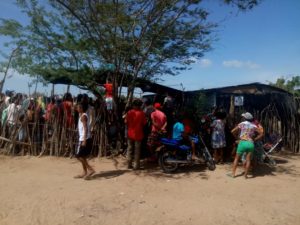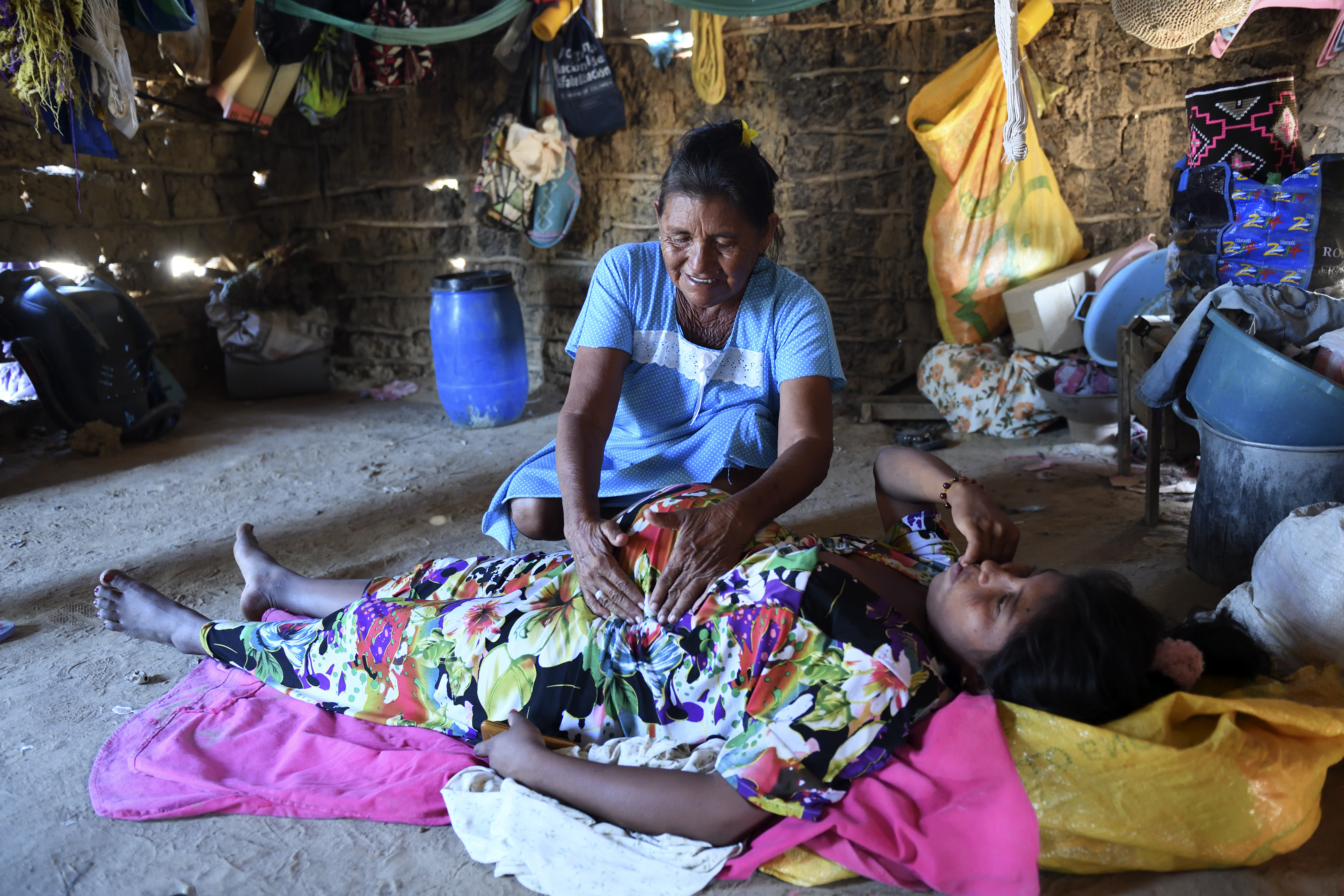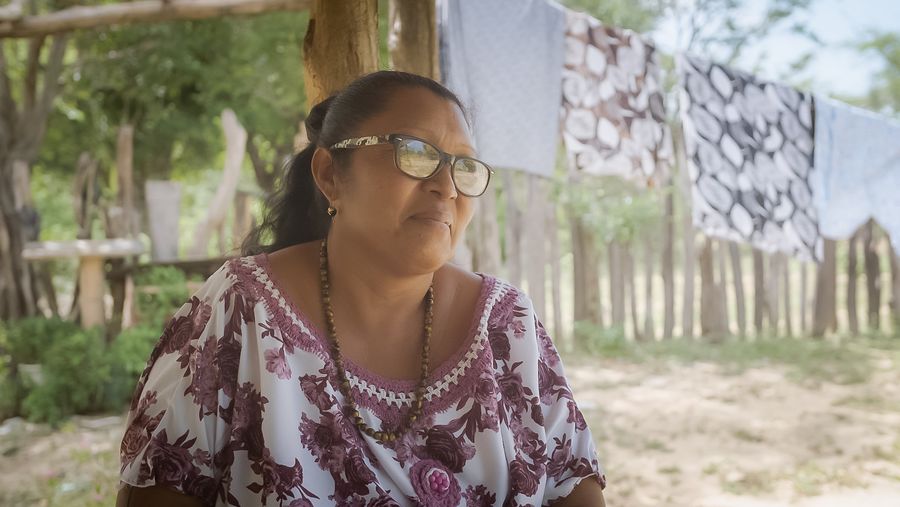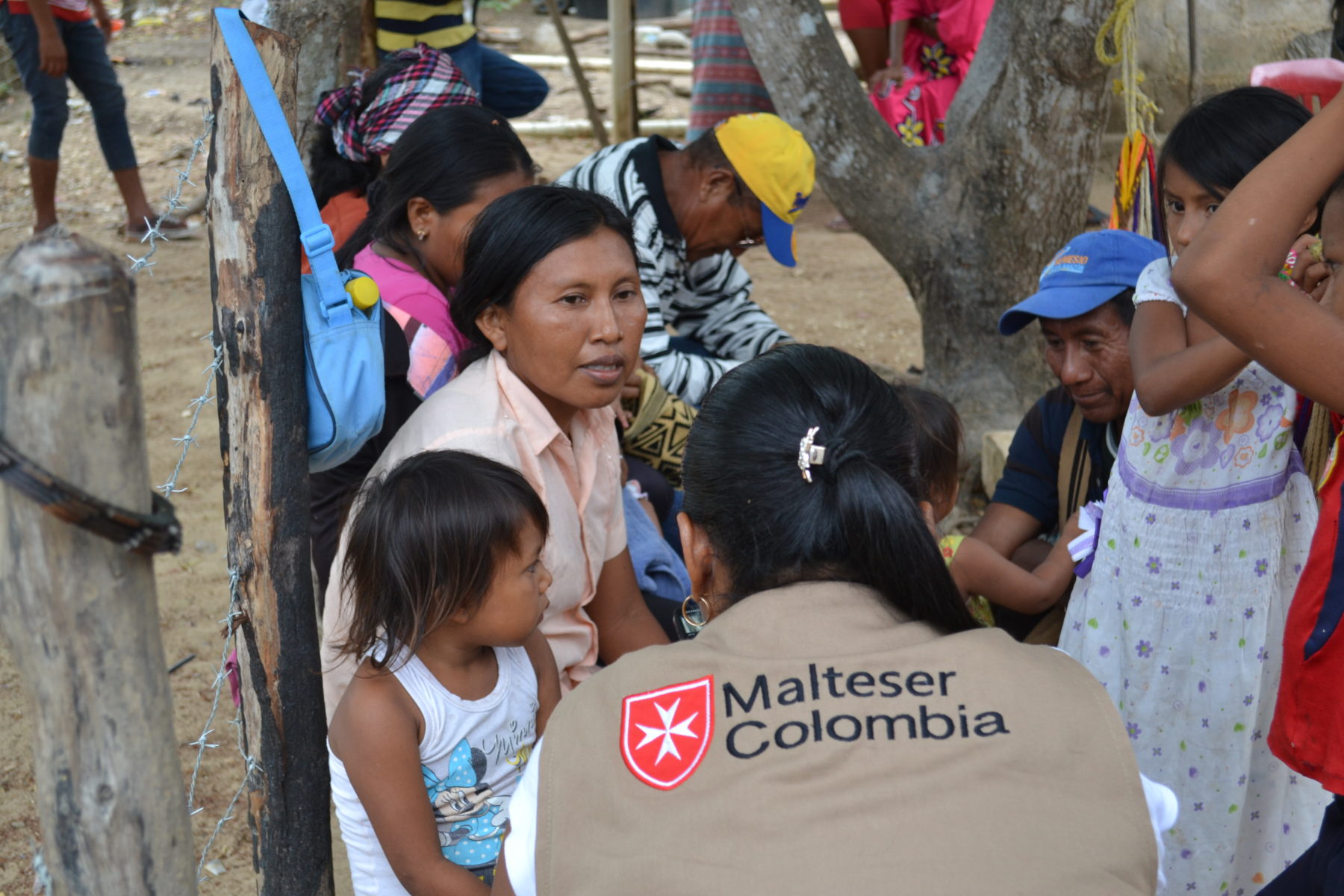South America
Do Not Forget the Wayuu Nation
Ravi Tripptrap, Executive Director of Malteser International Americas. Originally published June 19, 2020 on moderndiplomacy.eu
***
The international aid community must use the occasion of World Refugee Day to start fielding the urgent needs of indigenous migrants. We must direct resources and recognize the particular barriers facing indigenous refugees and migrants, starting with the Wayuu Nation, at the northern tip of South America, bearing the heavy burden of the Venezuelan humanitarian crisis. 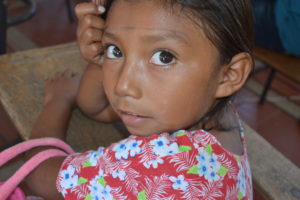
The situation in Venezuela has deteriorated dramatically, and yet the resources and attention for indigenous communities are scarce and do not match the scale of the tragedy. Indigenous Wayuu refugees and migrants are making new homes in Colombia’s remote rural areas. However, these host communities are deeply affected by structural poverty, malnutrition, marginalization, and struggle without interventions from their government and aid organizations.
Now with COVID-19 raging around the world, it’s hard not to see the lack of support in this region as negligence. Isolation of rural communities may have temporarily protected them, but these rural communities won’t be spared. Urban and peri-urban communities are already highly at risk with case numbers rising. Recent reports of spikes in COVID-19 infections and deaths in indigenous communities in the Amazon are cause for great alarm.
- There is poor water access and little access to soap, making handwashing next to impossible; add to that the lack of access to basic health services and there is a risk for silent outbreaks.
- The Wayuu communities are dependent on movement to urban centers for maintaining their livelihood. An economic shutdown is not an option.
- Just being a migrant or refugee may mean living in overcrowded conditions on informal settlements; making it next to impossible to fully implement isolation practices.
Malteser International Americas is on the ground in Colombia. With COVID-19 already starting in the region, there are going to be certain people who suffer more. There will be those who will not have access to health care because of marginalization, cultural bias,and xenophobia. Those who will face these barriers are the refugees and migrants and the indigenous communities. If they are both migrant and indigenous, the barriers are further compounded.
This is unacceptable.
—
South America’s Wayuu Nation spans over 4,000 square miles of arid land in the northernmost tip of the continent. The political boundaries of Colombia and Venezuela have kept the Wayuu indigenous nation divided.
In northern Colombia, is La Guajira, one of the country’s poorest states, with depleted natural resources and a region vulnerable to natural disasters. Food insecurity and malnutrition have been of great concern for this population for years and with the arrival of migrants, the stressed system, just can’t take care of everyone.
A rapid assessment – conducted by the United Nations High Commissioner for Refugees (UNHCR) – confirmed that 90% of rural indigenous communities are affected by the migration from Venezuela, leading to an increased strain on food security and morbidity of children under 5. It is estimated that 92% of La Guajira’s rural population lives in extreme poverty. This should be sobering for all.
Those who come offering assistance have to be strategic. The socio-cultural barriers the Wayuu face are significant. They already face discrimination and racism from the larger community. Educational materials – especially those related to health – should be translated into their language, Wayuunnaiki. Also, there should be an understanding of their cultural and spiritual practices so that any habit-changing behavior can be understood in the proper context.
—
Wayuu individuals, families, and clans began moving into the La Guajira region from Venezuela, bringing new and different social and cultural traditions and norms. The Nation believes “one people, beyond borders” thus indigenous Wayuu from Venezuela were accepted in Wayuu host communities.
Malteser International Americas works with local authorities to strengthen their ability to provide services to the Wayuu Nation; to both the refugees and migrants and the communities
Recently we launched an initiative called Rompiendo Fronteras or Breaking Borders. Through partnerships with local NGOs, Rompiendo Fronteras seeks to ease the burden of the migration crisis on vulnerable communities such as the Wayuu, while promoting peace and fighting xenophobia.
The program supports a mentorship program where Wayuu women are teaching traditional crocheting techniques to new arrivals. This has not only given the women a chance to become familiar with each other but given the incoming Wayuu women a new skill they can use to become more independent. 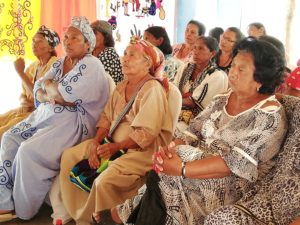
In Mongui, a township of 1500 residents, welcomed300 migrants in the last few years. Here we are easing the burden of housing by building new traditional homes for Venezuelan refugee and migrant families and strengthening and expanding living quarters for families who have seen their households multiply with the arrival of family members from across the border. The township Mayor and the ancestral leaders agree, it has been invaluable for keeping peace in the community.
—
The Wayuu who have traveled from Venezuela not only had to leave their own homes and familiar surroundings, they’ve now found themselves in a region with limited drinking water, poor community hygiene and malnutrition due to limited water and hunger, and overcrowded living conditions and now COVID-19. They flee from one indignity to the next.
But we see the possibilities and have been on the ground in the region for half a decade. Every time we enter a region, it is to ensure everyone can lead a healthy life with dignity. The Wayuu will not be forgotten, but we cannot do it alone.
In many humanitarian crises, there will be those who are overlooked. But now, as we reflect on World Refugee Day, everyone should be asking who are the people we think we’re serving, but are not. Where are our resources, skills, and expertise most needed?
Who are we forgetting?
